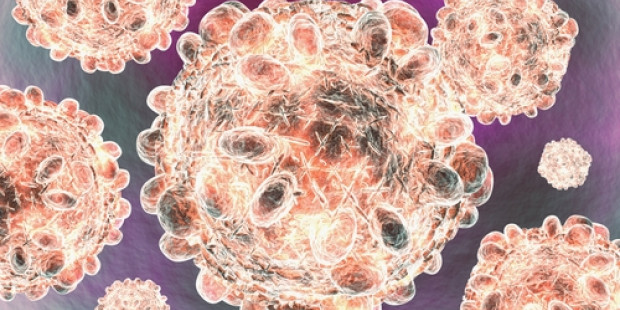Hepatitis C is the most common type of viral hepatitis. It’s caused by a blood-borne virus that attacks the liver and is easily spread by sharing drug use equipment. It can also be spread through sex.
Without treatment, the virus can cause liver disease that can be fatal.
Most people will be offered 12 weeks of tablets with few side effects and these give a high cure rate of 90-95%.
There is no vaccine against hepatitis C.
Stages of hepatitis C infection
- The first six months of infection with hepatitis C is called the acute phase. Around 20-25% of people will clear the virus naturally during this time. (This percentage is lower for people who also have HIV.)
- People who don’t clear the infection will enter the chronic (or long-term) phase and can pass hepatitis C on to others.
Hepatitis C symptoms
Most people who get hepatitis C don't notice any symptoms when they are first infected. It can take years before you feel ill, with symptoms often not easily identified as being due to hepatitis C.
The symptoms can include:
- mild flu-like symptoms
- nausea
- extreme tiredness
- itchy skin
- stomach pain
- jaundice, meaning your skin and the whites of your eyes turn yellow, your urine is dark and your faeces (poo) are pale
- mental confusion (often called ‘brain fog’) and depression – these are specific to the C strain of hepatitis.
How it's passed on
The hepatitis C virus is found in blood and is passed on when infected blood gets into another person’s bloodstream. It’s seen as unlikely (but not impossible) that it can be passed on in semen.
Most people get the virus from sharing drug injecting equipment such as needles, syringes, water cups, tourniquets, spoons, filters and swabs. Sharing things like straws and banknotes that are used for snorting drugs might pass the virus on, as can sharing pipes.
In the UK piercing and tattooing should be safe – but unsterilised equipment abroad can spread the virus.
An infected person risks infecting others if they share anything that might have blood on it like a toothbrush or razor.
The virus can be passed on during pregnancy from parent to baby.
Blood transfusions in the UK are safe as blood is screened.
You can also potentially get it from medical or dental treatment abroad in countries where hepatitis C is common and infection control is inadequate.
Hepatitis C and sex
Hepatitis C is rarely passed on during vaginal/frontal sex. There’s also no significant spread of hepatitis C among HIV negative gay men. But the infection has spread sexually among gay and bisexual men and other men who have sex with men living with HIV and is much more common among them.
Gay men, chemsex and hep C
Group sex and chemsex parties can be places where hepatitis C is easily passed on.
If you’re taking drugs and having sex for longer your inhibitions are likely to be lowered and the delicate skin lining the anus can be damaged, causing bleeding. Hepatitis C is very infectious and is easily passed on through group sex – it can even be passed from one person to another on fingers.
The virus spreads through anal sex and fisting when condoms and gloves are not used. It’s also passed on during group sex, on objects such as sex toys, fingers, enema equipment, condoms, latex gloves or in contaminated lubricant.
The iBase guide Safer HCV sex for gay men is a useful reminder of what to avoid and what steps to take to protect yourself.
The Hepatitis C Trust has some useful information about transmission. They also provide an advocacy service for men who have sex with men who have been re-infected with hepatitis C after previously being successfully treated.
How can I protect myself and others?
- Never share injecting drug equipment (eg, needles, syringes, swabs, spoons, filters) or things that may have blood on them such as toothbrushes and razors. Also avoid sharing straws or rolled up banknotes if snorting drugs with others.
- Use condoms for anal and vaginal sex and latex gloves for fisting.
- During group sex, cover anything which goes from one partner to another with a fresh condom or fresh latex glove for each new person it enters. Clean objects with warm water and anti-bacterial soap before using on a new partner.
- Don’t share enema equipment or pots of lubricant.
If you have hepatitis C you may want to tell a partner and explain that you’re infectious. They can then decide what precautions they want to take to lessen the likelihood they will acquire hepatitis C.
What can I do if I think I have hepatitis C?
A doctor or sexual health clinician can test you to see if you have hepatitis C. If you do, effective treatment with fewer side effects than the older medicine is available and you can discuss how to avoid infecting your sexual partners or people you live with.
It can take three to six months before the blood test for hepatitis C will be able to detect signs of infection in your blood. For people with HIV who may be immunocompromised, the antibody may not be detectable and it may be necessary to request an RNA test which detects the virus.
Is there a vaccination against hepatitis C?
No, there is no vaccination against hepatitis C, but you can be vaccinated against hepatitis A and B.
If you already have hepatitis C, it’s recommended to have the vaccination against hepatitis A and B to protect your liver from further damage.
Hepatitis C treatment
Drug treatment is available and has few side effects. In fact, 90-95% of people can be cured by the new medications, known as direct acting antivirals (DAAs). These are taken in tablet form once or twice a day, typically for 12 weeks.
You can find out more detailed information about treatment for hepatitis C on the Hepatitis C Trust website.
If you have hepatitis C you should also:
- avoid alcohol
- avoid smoking as it can make the liver damage worse
- avoid recreational drugs to allow your liver to get better
- eat a healthy, balanced diet.
If you’re cured of hepatitis C, you’re not immune – you can get hep C again. You can also still get other types of hepatitis, and having hepatitis C and another type is more serious.
Why should I get treated?
Hepatitis C can be fatal when left untreated.
Untreated hepatitis C can lead to scarring of the liver known as cirrhosis.
A small number of people with cirrhosis will go on to get liver failure, the only treatment for which is a liver transplant. A small proportion of people with cirrhosis develop liver cancer.
Giving blood and organ donation
If you have hepatitis C, you cannot give blood.
Now that we have treatments that clear hepatitis C infection, organs can be donated from people who have cleared hepatitis C infection.




